News and Announcements

CSER’s Mae Ngai was recently interviewed on Background Briefing abut immigration, on one year anniversary of the second Trump administration. Listen to it here.

CSER’s Mae Ngai was recently featured in a segment on Democracy Now! speaking about denaturalization and birthright citizenship. Watch it here!

Professor Mae Ngai was chosen as a Margaret Olivia Sage Scholar by the Russell Sage Foundation for 2026-2027. MOS scholars are nominated and selected by the foundation’s board of trustees on the basis of “outstanding career accomplishments.”
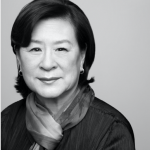
Professor Mae Ngai was named an honorary fellow of the American Society for Legal History, the highest honor the Society confers, which recognizes distinguished historians whose scholarship has shaped the broad discipline of legal history and influenced the work of others, at its annual meeting in Detroit in November 15.
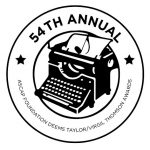
CSER’s Shana Redmond received a Special Recognition Award from the ASCAP Foundation for the liner notes she authored for the Grammy-nominated album Paul Robeson–Voice of Freedom: His Complete Columbia, RCA, HMV, and Victor Recordings (Sony Classical, 2024)! The liner notes received the Paul Williams “Loved the Liner Notes” Award at the 56th annual ASCAP Foundation Deems Taylor/Virgil Thomson Awards. Read the full announcement here.
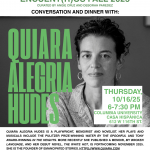
CSER’s Encuent(r)os event featuring Pulitzer Prize winner Quiara Alegría Hudes was featured in a write-up in the Columbia Spectator! The event was organized by CSER prof. Angie Cruz on behalf of CSER, Aster(ix) Journal, and Casa Hispanica.

CSER’s Mae Ngai recently published a piece in The New York Review of Books titled, “The End of Asylum.” The second Trump administration has collapsed the distinction between political and economic migrants. Did it make sense to separate them to begin with?

CSER’s Writer-in-Residence, Marie Myung-Ok Lee, recently judged the 8th annual New American Voices Award hosted by Fall for the Book. Read the full announcement here!

As part of CSER’s new programming series, Encuent(r)os, the writer, director, and performer Naima Ramos Chapman facilitated a writing workshop for the CSER community. After the workshop, students of Encuent(r)os curator Angie Cruz (Julissa Hernandez Alejandre and Sophia Amalia Medina, pictured) interviewed Ramos Chapman at Casa Hispánica about their work. Encuent(r)os explores the diversity of Latinidad and Latinx Studies by putting scholars and artists into conversation.

CSER’s Mae Ngai was recently quoted in an article in Huff Post about denaturalization. Read it here.
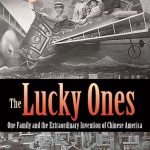
The film and TV rights to CSER Prof. Mae Ngai’s 2010 book The Lucky Ones: One Family and the Extraordinary Invention of Chinese America have been acquired by Neurosphere Entertainment, which plans to develop the book into a historical drama. The Lucky Ones uncovers the story of the Tape family in post-gold rush, racially explosive San Francisco. Read the full announcement here.

CSER adjunct Ed Morales recently published an annotated playlist and obituary in honor of Nuyorican pianist and bandleader Eddie Palmieri in The New York Times. Morales previously invited Palmieri to speak at an event sponsored by CSER in 2022. Read it here!

CSER’s Sayantani DasGupta was featured in several major news outlets for her take on the controversial American Eagle ad featuring actress Sydney Sweeney. Professor DasGupta posted a viral TikTok analyzing and historicizing the ad based on her expertise.
Read the CNN article here: https://www.cnn.com/2025/08/02/entertainment/sydney-sweeney-american-eagle-ad-dunkin-drama-cec
Watch the Anderson Cooper 360 segment here: https://www.cnn.com/2025/08/01/business/video/sydney-sweeney-american-eagle-ad-digvid
Read the People article here: https://people.com/sydney-sweeney-american-eagle-ad-explained-11781702
Read Professor DasGupta’s piece in MedPage Today here: https://www.medpagetoday.com/popmedicine/popmedicine/116839?trw=no
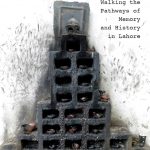
CSER Professor Manan Ahmed’s most recent book, Disrupted City: Walking the Pathways of Memory and History in Lahore, was longlisted for the 2025 Cundill History Prize. The prize, which is administered by McGill University in Montreal and awarded by a distinguished jury, is given annually to the book that embodies historical scholarship, originality, literary quality, and broad appeal. Read the full announcement here.

CSER’s Lori Flores published an article in The Guardian titled “How US immigration raids hurt summer pleasures, from berries to barbecues.” Read it here!
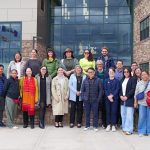
Thursday, June 12, 2025
The 2025 immersion Program (27 May to 6 June 2025) was successfully completed on June 6th.
Grandmother Clara Soaring Hawk, Ambassador of the Ramapough Lenape Nation, offered an opening ceremony.
The Program was organized by Columbia’s Institute for the Study of Human Rights (ISHR) and cosponsored by the Center for the Study of Ethnicity and Race (CSER) and the Department of International and Comparative Education at Teachers College. CSER and Teachers College were generous supporting partners from the beginning. Among other things, CSER generously provided its seminar room for our classes at Columbia. The International and Comparative Education Program at Teachers College offered the expertise of Professor Prem Phyak in linguistic human rights and identified two PhD researchers who participated as auditors during the Program.
The Program enjoys the cosponsorship and collaboration of the University of British Columbia in Canada, University of Toronto and the University of Auckland in Aotearoa/New Zealand. Those universities supported three excellent professors who taught several classes: Professor Claire Charters, Professor Andrew Erueti and Professor Sheryl Lightfoot. They also funded three graduate researcher participants. In addition, Professors and instructors from other universities and institutions offered seminars on a variety of topics composing the rich curriculum.
This is an immersion program and participants were expected to devote some seven hours daily to the Program. The course encouraged team learning and synergy by creating a community atmosphere among participants.
There were twenty-six lectures and workshops in a two-week period, including sessions with officials of the St. Regis Mohawk Tribe and others in the community as well as sessions with UN officials. In addition, there were seven participants’ panels. The Program provided 65 hours of lectures, workshops, seminars and related activities. It offered an overview and analysis of the major questions in Indigenous affairs today, as they have emerged globally in the last decades and as they have been put forward by the Indigenous Peoples’ movement, culminating in the adoption of the UN Declaration on the Rights of Indigenous Peoples and efforts towards its implementation.
Participants: After an unprecedented number of applications, some 195, we had 19 participants from 11 countries and 14 Indigenous nations. Participants were mid- to high-level professionals in different fields (academia, civil service, Indigenous authorities, non-governmental organizations, foundations).
Field visit to Akwesasne, St. Regis Mohawk Tribe: The two-day visit was characterized as “life-changing” by many participants in their evaluations. The authorities and other actors in the community opened their doors to us, discussed their issues and shared their visions and actions.
Visit to the UN: Three speakers addressed our group: the Acting Chief of the Secretariat of the UN Permanent Forum on Indigenous Issues; the Senior Policy Adviser, in the Indigenous Peoples and Local Community Engagement of the United Nations Development Program; and the Minister Counselor of the Permanent Mission of Brazil to the United Nations. We also had a special tour of UN Headquarters.
Future of the Program: The Program has taken place at Columbia since 2013. We appreciate and are honored that about 250 people, and their organizations and institutions from around the world, placed their trust in us and joined this Program over the years, strengthening the community for Indigenous Peoples’ rights. We look forward to seeing this Program continue.
Elsa Stamatopoulou
Academic Coordinator of the International Program on Indigenous Peoples’ Rights and Policy, 2013-2025

Professor Mae Ngai discussed threats by the Trump administration to terminate visas of Chinese international students at a webinar sponsored by UCLA Center for Chinese Studies on June 5. Watch the recording here!

The film White with Fear, which features CSER’s Mae Ngai, was recently released on-demand streaming platforms including Amazon, Apple, and VUDU. The film has a 93% “Fresh” rating on Rotten Tomatoes.
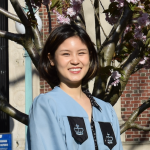
CSER alumnus Audrey Oh (’21) was recently shortlisted for the Chris Meade Memorial UK 2024 New Media Writing Prize for her work on a project initially created for a CSER course called Documenting Disaster, taught by Prof. Deborah Paredez. The project, which can be found here, is an interactive text narrative about Audrey’s time in New York City as a foreigner during COVID. The project also received an honorable mention in the Social Good for Interactive Narrative category.
CSER’s writer-in-residence Marie Myung-Ok Lee is slated to give a convocation speech at Carleton College, titled “Acceptance versus Belonging and the Life You Want to Live.” Read more here!

